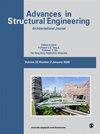设计具有高运动顺应性的个性化膝关节康复外骨骼
IF 2
4区 工程技术
引用次数: 0
摘要
在膝关节运动过程中,胫骨相对于股骨的瞬时旋转中心(ICR)并不是固定不变的,而是沿着由关节结构决定的曲线运动。适应穿戴者个性化的膝关节结构对于提高外骨骼的穿戴舒适性和康复效果非常重要。本文提出了一种具有高人机顺应性的个性化膝关节康复外骨骼的设计方法。首先,提出了一种瞬时中心曲线(ICC)生成算法,该算法从穿戴者膝关节的医学图像中提取胫骨的特征点,生成不同膝关节角度下的胫骨ICR,然后将ICR拟合到膝关节的ICC中。其次,应用膝关节四杆联动模型,通过最小化联动装置与穿戴者的 ICR 之间的偏差来优化联动装置的结构参数。最后,采用共轭凸轮与鲍登电缆相结合的轻质传输方案,实现了下肢康复外骨骼。实验结果表明,所设计的外骨骼重量轻,相对运动小,与穿戴者的相互作用力小,实现了良好的穿戴舒适性和运动顺应性。本文章由计算机程序翻译,如有差异,请以英文原文为准。
Design of a personalized knee rehabilitation exoskeleton with high motion compliance
During the motion of a knee joint, the instantaneous center of rotation (ICR) of the tibia relative to the femur is not fixed but moves along a curve decided by the joint structure. Adapting to wearer’s personalized knee joint structure is important to improve the wearing comfort and rehabilitation effect of the exoskeleton. The paper proposes a design method of a personalized knee rehabilitation exoskeleton with high human-machine compliance. Firstly, an instantaneous center curve (ICC) generation algorithm is proposed, which extracts feature points of the tibia from the medical images of the wearer’s knee joint, generates ICRs of the tibia at different knee joint angles, and then fits the ICRs into the ICC of the knee joint. Secondly, a four-bar linkage model for the knee joint is applied, and the structure parameters of the linkage are optimized by minimizing the deviations between the ICRs of the linkage and the wearer. Finally, a lower limb rehabilitation exoskeleton is implemented, adopting a lightweight transmission scheme using conjugate cams combined with Bowden cables. The experimental results show that the designed exoskeleton is lightweight and has small relative movement and small interaction forces with the wearer, realizing good wearing comfort and motion compliance.
求助全文
通过发布文献求助,成功后即可免费获取论文全文。
去求助
来源期刊

Advances in Mechanical Engineering
Engineering-Mechanical Engineering
自引率
4.80%
发文量
353
期刊介绍:
Advances in Mechanical Engineering (AIME) is a JCR Ranked, peer-reviewed, open access journal which publishes a wide range of original research and review articles. The journal Editorial Board welcomes manuscripts in both fundamental and applied research areas, and encourages submissions which contribute novel and innovative insights to the field of mechanical engineering
 求助内容:
求助内容: 应助结果提醒方式:
应助结果提醒方式:


